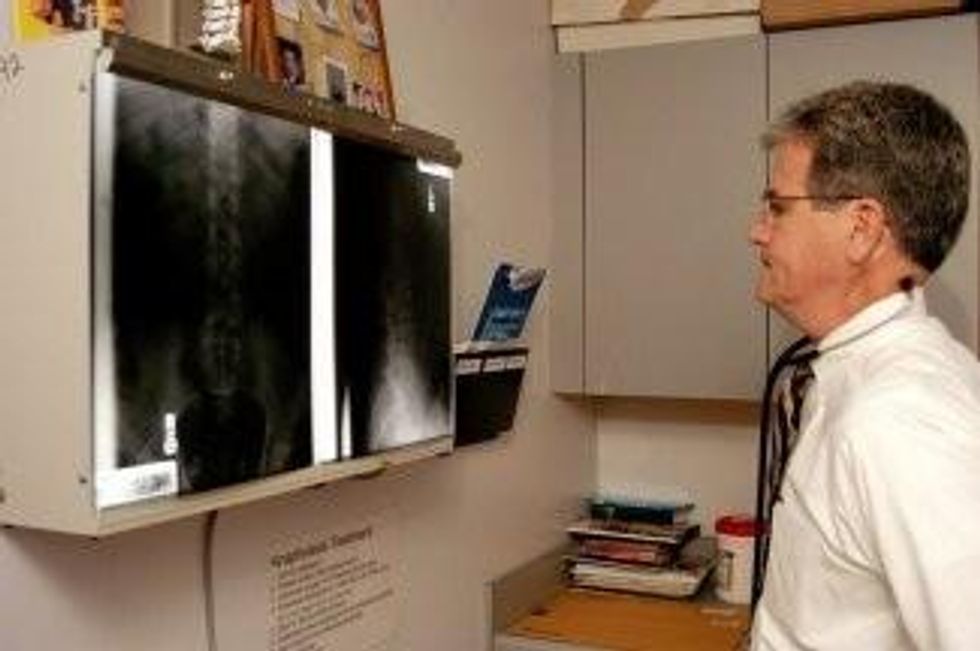What would you think if your physician told you, "Keep smoking because quitting would kill tobacco and health care jobs." Or, "Don't take your high blood pressure medicine, you can't afford it." And, "Don't lose weight, no one has proven obesity is bad for you."
That's exactly the quality of medical advice we are getting from the 18 Republican physicians currently serving in Congress. Some of the most well known are the father and son team of Rep. Ron and Sen. Rand Paul and Sen.Tom Coburn. Almost all of these physician/Congressmen have been key soldiers in the Republican war on the EPA; calling it a "job killer," pronouncing relevant health science "unproven," claiming we "can't afford" their regulations.
In the last ten years over 2,000 scientific studies published in the main stream medical literature have revealed that air pollution has much of the same physiologic and disease consequence as first and second hand cigarette smoke. Those studies show that just as there is no safe number of cigarettes a person can smoke, there is no safe level of air pollution a person can breathe. Even pollution at "background" levels still causes health consequences.
Air pollution contributes to and/or exacerbates, virtually every lung disease known, in every age group, from newborns to the elderly. The connection is as solid as that between smoking and lung cancer, in fact air pollution also causes lung cancer. But air pollution damages much more than the lungs. It causes a systemic low grade arterial inflammation, impairing and increasing the disease potential of virtually every organ system, especially the heart, lungs, brain and placenta. Heart attacks, strokes, sudden death, poor birth outcomes, higher infant mortality rates, autism, Alzheimer's, diabetes and breast cancer are just some of the many diseases found to occur in significantly higher rates among people who breathe more air pollution. Even people who are otherwise healthy are harmed. Air pollution accelerates the aging process, increases the average person's blood pressure and shortens life expectancy even if it causes no obvious symptoms.
Particulate air pollution, the primary focus of EPA regulations, can travel from the lungs to the arteries and eventually penetrate any cell in the body. For example, the chemicals and heavy metals within particulate pollution can actually penetrate brain tissue causing loss of intelligence and memory and learning impairment in children.
Pollution particles can even penetrate subcellular structures like the cell nucleus where the all important chromosomes lie. Particulate air pollution can alter and damage chromosomes, especially serious if occurring during early embryonic development. By causing chromosomal dysfunction air pollution can even impair the health of future generations.
The nation's premier pollution and health experts, the Clean Air Scientific Advisory Committee (CASAC) regularly review all new medical research and advise the EPA on updating the national air pollution standards. Every time the CASAC has made that review, they have called for making those standards more strict, as they are doing right now and have been since 2006.
Supporting the CASAC in calling for standards even more strict than what Republicans are bludgeoning the EPA for, is virtually every major medical and public health organization in the country, specifically, the American Medical Association, the American Thoracic Society, the American Lung Association, the American Academy of Pediatrics, the American College of Cardiology, the American Heart Association, the American Cancer Society, the American Public Health Association, and the National Association of Local Boards of Health. Indeed, there is no reputable health group that disagrees with the CASAC's recommendations because they understand and accept new research, apparently unlike our physician/Congressmen.
Every study not funded by fossil fuel industries has shown economic and health benefits of controlling air pollution far exceeding the costs of implementing those controls, even if pollution levels are already low. In fact, the benefits average 30 times greater than the costs, and those benefits create jobs, not kill them. Where else can Americans invest their money and get that high a rate of return?
Being on the front lines of patient care, in a specialty where the margins between life and death can be very thin, I'm reluctant to accuse other physicians of malpractice. However, it is obvious these lawmakers have let political fealty co-opt their medical judgement. Moreover, their malfeasance has the potential to sabotage the health of millions, not just a handful of their own patients. This is malpractice on a grand scale.



